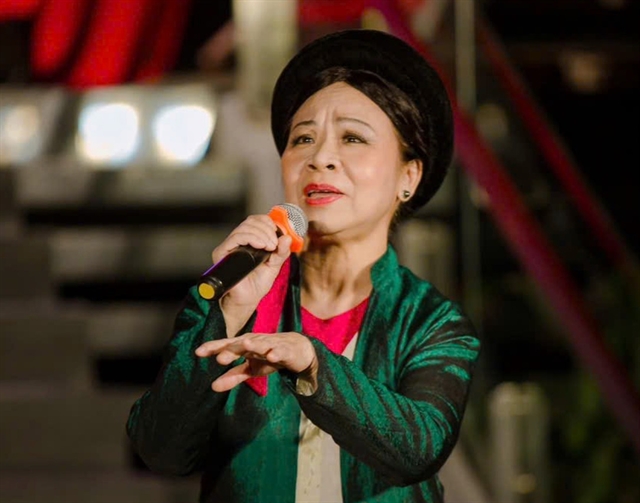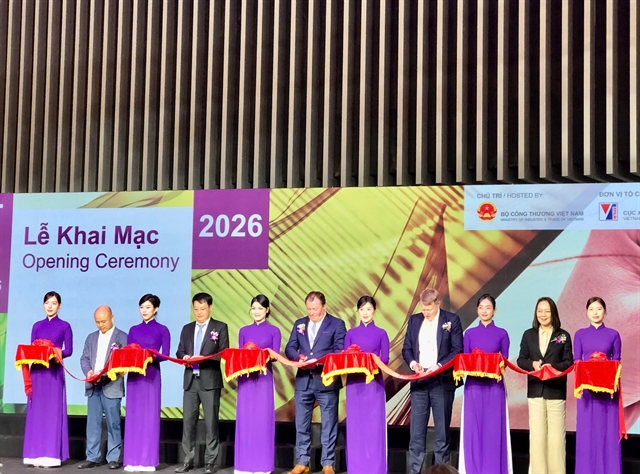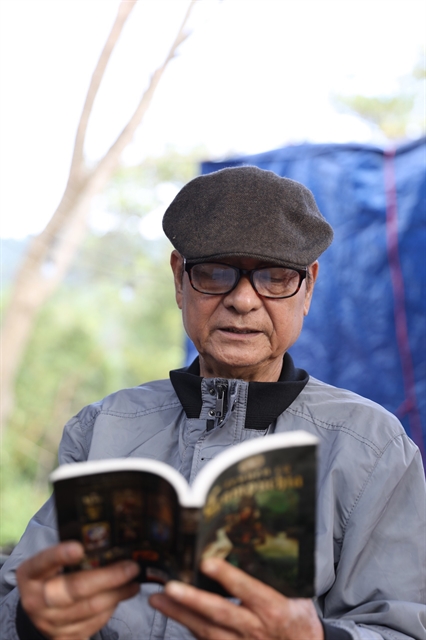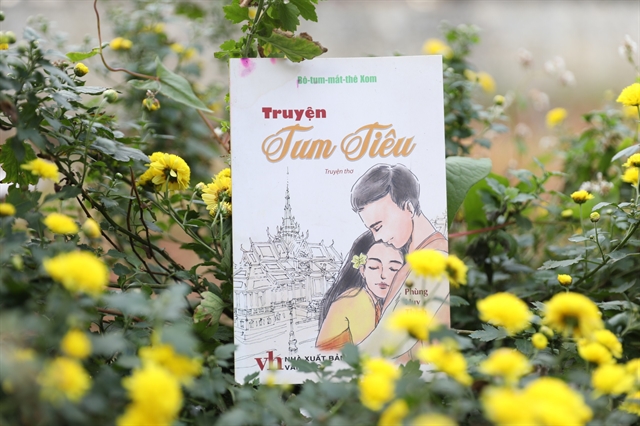 Inner Sanctum
Inner Sanctum

 |
| A MAN FOR ALL SEASONS: Former Vietnam News Agency Correspondent in Cambodia Phùng Huy Thịnh helped his colleagues learn the craft of writing news |
Veteran war correspondent Phùng Huy Thịnh had a career that spanned working for the Vietnam News Agency, and reporting from the Southern battlefront in the 1970s, to spending nine years in Phnom Penh helping Cambodians start their SPK news agency. He discusses his journey with Inner Sanctum
Inner Sanctum: Could you tell us about your assignment to Cambodia?
We can definitely say that the Vietnam News Agency (VNA) was one of the government bodies that helped our Cambodian counterpart, SPK news agency, on a large scale. From the very first days of the Cambodian rebirth from the Khmer Rouge genocidal regime, we were already helping to maintain the flow of information and communications.
The Việt Nam Volunteer Army came to Cambodia for military assistance, but we also helped our Cambodian colleagues with setting up the Cambodian News Agency (SPK) with local offices around the country.
Every year, when Cambodia celebrated their rebirth, SPK held many meetings and celebrations. VNA reporters, experts and technicians worked in Cambodia for as long as 10 years. Cambodian people trusted their SPK employees. They supported their government. Everywhere we went, we were met with the useful help of the people.
In 1983 Nguyễn Công Khuyến, who later became editor-in-chief of Việt Nam News, went to Phnom Penh with some English and French-language reporters from VNA to help SPK establish its own French and English News Desk.
Our relationship with Cambodian colleagues was very close. We not only helped them write news, our VNA volunteer reporters also helped them write news in English and French. Khuyến got a crowd around him every time he held a class teaching writing and reporting skills in English.
I was an armyman and survived the battle of Quảng Trị in 1972. After the war ended in 1975, I went back to Hà Nội University to complete my bachelor's degree in Vietnamese language.
After graduation, I went to the VNA headquarters in Hà Nội to apply for a job. There I met Đỗ Phượng, who was head of the VNA mission in Cambodia, and who immediately asked if I would go to Cambodia, to which I answered, "Yes, sir. I am ready for any posting."
In the first days of 1980, we were sent to learn the Khmer language in Hồ Chí Minh City for five and a half months.
We went to Phnom Penh to help establish the SPK news agency. I remember our trips across Cambodia with Sumean, who later became SPK General Director and Xaukun, who would go on to chair the National News Desk at SPK.
From the east, we went to Kratie, or on the west via Battambang to Siem Reap, then Kampong Cham, everywhere in the country. As we went together, we helped them get the information, interview people, write a news article, and then send them to the SPK headquarters.
 |
| IN TRANSLATION: Cambodian book 'The Tale of Tum Tiêu' was translated into Vietnamese and released in Việt Nam by veteran journalist Phùng Huy Thịnh. VNS Photos Đoàn Tùng |
I ended up staying in Cambodia for four years as a volunteer reporter for SPK, and four years as a VNA correspondent in Phnom Penh.
In 1989, when Việt Nam withdrew all its troops from Cambodia, I completed my posting and went back to VNA headquarters.
For work, besides my main job helping my Cambodian colleagues write news and feature stories, I was also a war veteran helping them with my experience as a soldier.
After Cambodia was liberated, remnants of the Pol Pot armed forces were still hiding in remote areas around the country. All the roads were really bad, and our car could not go faster than 15km/hour. From Battambang to Pnom Penh, we travelled 200km in two days, and I remember I once had a stomach haemorrhage along the way.
When the Khmer Rouge was in power, Pol Pot carried out a policy to push all the urban population out of the cities to the countryside for forced labour in collective farms, and confiscated all personal valuable belongings. Anyone who opposed their policy was killed, not with a bullet, but with a bang of a hoe in the back of their head. If you go to Toul Sleng Museum in Phnom Penh, all the skulls gathered there have holes in them. It was a genocide indeed.
If we do not mention this now, then one day, maybe future generations will not understand why it happened. So when we recruited new reporters for SPK, few people had the necessary credentials. We wanted high school graduates only, but Xaukun said to me, "We could only find 7th graders, bro, please teach them from the very beginning."
 |
| Some of the published titles, which were printed in the 1980s for 30,000 copies in the first edition. VNS Photo Đoàn Tùng |
Inner Sanctum: How did you learn the Khmer language?
Please bear in mind that Khmer is a very difficult language. The spoken language we could easily speak, but the writing was hard to master. Our group had 24 people who were college graduates studying Khmer, but later on, only four could work with it. Khmer has 33 consonants and 33 consonant feet, 24 vowels. Then we didn't have a typewriter with the 74-letter Khmer alphabet.
I studied Chinese and Russian as a foreign language in high school. When I joined the army, my fellow soldiers from Huế taught us some French, so I was familiar with different languages and found learning a new language was quite fun. Having learned the language, other work would just follow suit.
Inner Sanctum: How was the relationship between Vietnamese and Cambodians?
Cambodian people said Vietnamese volunteer troops were the Buddha army who came to rescue them. Having worked for SPK, we got a warm welcome from the people everywhere we went. The people trusted SPK, and believed that SPK represented the government and would extend their help to us. We were embraced by the people, and they gave us food and provided us with places to stay.
We were once blocked on the road by Pol Pot forces on both ends. Stuck there, we had to pick mangroves for food for three days. Other times we were ambushed, but luckily escaped fire. Once I went with international reporters to witness a campsite of Pol Pot's force in a border area with Thailand, but we were detected and fired upon from across the border. All of us ran for our lives, and luckily none got hurt.
Having lived in Cambodia, we felt great compassion from the mothers and sisters of Cambodia. The men showed little sentiment, but for those whom I worked with, we became close as brothers. Back then, on every occasion of a Cambodian celebration, I would translate a special edition of Cambodian literature with two literary pages and one poetry page for Việt Nam Literature magazine.
Inner Sanctum: Have you been back since 1989?
No, I'm in my old age now, I can't travel far any more. Now I'm 71 years old. I have multiple memories from my time in Cambodia, and will always feel an attachment to the people and the land. VNS




